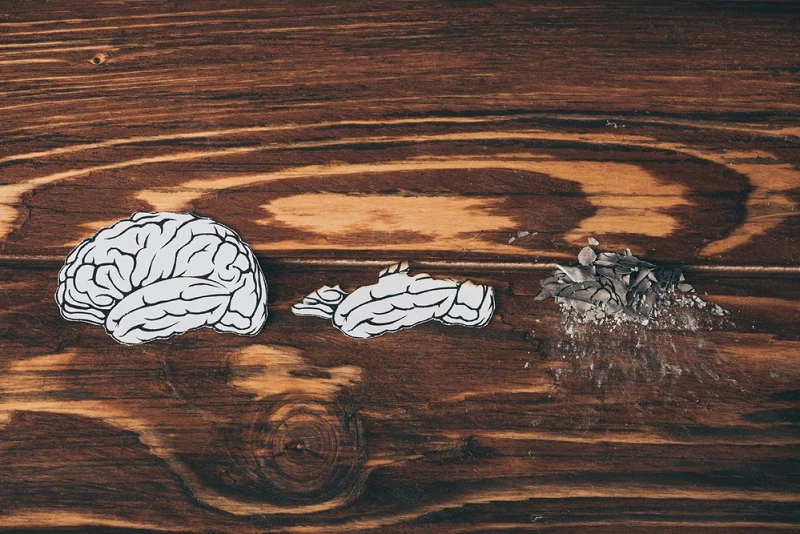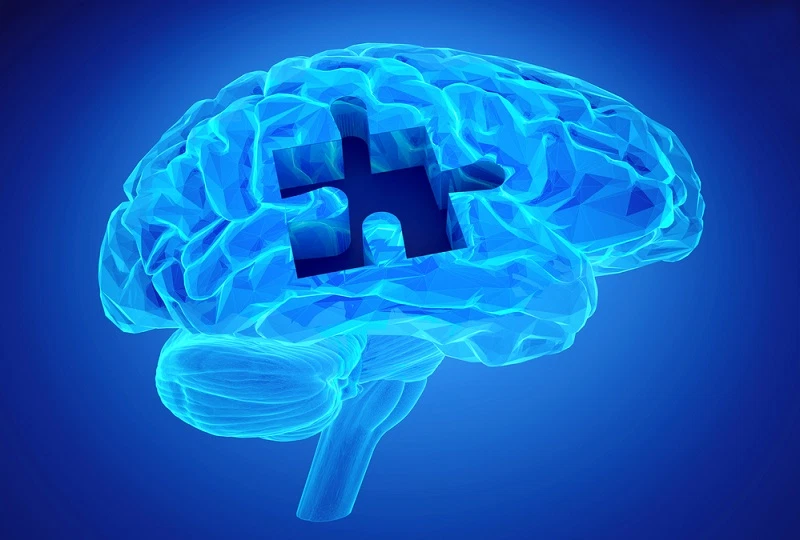Managing these personality-altering symptoms is a major challenge. Transcranial magnetic stimulation (TMS) recently emerged as a promising treatment option. Can TMS therapy help? Find out below.
What is a Traumatic Brain Injury?
A traumatic brain injury (TBI), as the name suggests, involves sudden trauma to the brain – usually from a sudden jolt or blow. The severity of TBIs ranges from mild to severe, and the effects depend on the trauma location and the injury’s severity.
Common causes of TBI include:
- Falls
- Car accidents
- Sports injuries
- Assaults
In addition to physical symptoms, like headache, nausea, and dizziness, the psychological effects of brain injury are a key treatment area. Notable effects include changes in mood, behavior, and personality. Depression and anxiety following a traumatic brain injury are two of the most common effects:
- Depression, or post-TBI depression, is an often-underappreciated symptom that severely impacts a person’s ability to function normally. Even in individuals with no history of depression, a TBI can cause a sudden onset. Symptoms of depression include feelings of sadness, loss of enjoyment in activities, hopelessness, sleep disturbances, mood alterations, and more.
- Anxiety is another common psychological effect of brain injury. Psychological symptoms include excessive worry, fear, and nervousness that impedes daily activities. Moreover, anxiety also has a physical component, causing rapid heart rate, sweating, and trembling.
Personality and cognitive changes are also associated with TBIs. In one notable historical case, Phineas Gage (1823 to 1860) survived an accident in which a large iron rod was driven completely through his head. Much of his brain’s left frontal lobe was destroyed, resulting in an abrupt personality change: from hard-working and responsible to reckless and rude. Indeed, irritability, aggression, and difficulty with memory and concentration are common psychological effects of brain injury.

If you or a loved one is experiencing any of these symptoms following a TBI, you should always seek medical help. Corrective treatments, like TMS, can help manage symptoms and improve the individual’s quality of life.
Treatment for Traumatic Brain Injury and Depression
Several treatment options are available for individuals with TBI and depression. Finding the appropriate treatment plan will depend on the precise symptoms and severity of the injury.
Medication and Talk Therapy
Medication and talk therapy are typically first-line treatments for depression, including post-TBI depression. Antidepressant medications, like SSRIs or SNRIs, are strongly recommended in major depressive disorder; however, the evidence in milder incidences of depression is more equivocal. Talking therapies, like cognitive-behavioral therapy (CBT), can also help individuals learn coping skills and develop strategies to manage their symptoms.
Transcranial Magnetic Stimulation (TMS) Therapy
TMS therapy for TBI is a cutting-edge treatment currently being developed. TMS has already received approval from the FDA for the treatment of major depressive disorder and obsessive-compulsive disorder (OCD), with further indications likely to be forthcoming.
Several studies have shown that depression and anxiety are associated with increased nerve cell activity in the prefrontal cortex; TMS may reduce activity in this region, dampening symptoms. Indeed, a meta-analysis found that TMS therapy improved cognitive function and reduced depression in individuals with TBI.
TMS for brain injury is administered over several weeks; patients may require multiple sessions to see results.
Advantages of TMS Therapy Over Medication
TMS therapy for TBI has several advantages over traditional treatment modalities. First, it is non-invasive and has fewer side effects. Minimizing side effects is critical since individuals with TBIs also experience physical changes. Second, TMS treatment for TBI has the potential to provide long-term symptom relief by influencing the underlying nerve cells. For individuals with chronic TBI or post-TBI depression, it makes it an attractive treatment option.
Considerations for TMS Therapy
While the benefits of TMS for TBI are impressive, it isn’t suitable for everyone. Individuals with certain medication conditions or implanted devices do not qualify for TMS therapy. Speak to your doctor to determine if you qualify for TMS therapy.
Moreover, other treatment options, like talk therapy, lifestyle changes, or even medication, may be preferable in certain circumstances or for milder cases. Nevertheless, TMS therapy is a promising alternative treatment option at the cutting edge of research.

Why TMS Therapy is a Better Option for Post-TBI Depression Than Medication
Any injury to the head should be treated seriously and quickly. Traumatic brain injuries, in particular, have a lasting impact on an individual’s physical, mental, and emotional health. Seeking treatment for the psychological effects of brain injury should be a priority. Indeed, post-TBI depression is an especially difficult condition to manage, as traditional medication treatments may be unsuitable due to the physical consequences of a TBI or the risk of side effects.
Transcranial magnetic stimulation therapy is a breakthrough treatment promising an alternative to first-line interventions. Numerous studies have shown that it effectively reduces depression and anxiety following a traumatic brain injury.
Here are some key benefits of TMS therapy for TBI compared to medication:
- TMS therapy for TBI is a non-invasive procedure with fewer side effects than traditional treatments.
- Several studies indicate the potential of TMS therapy to reduce symptoms of depression and anxiety following traumatic brain injuries.
- Patients may experience long-term symptomatic relief from TMS therapy, making it an attractive option for those with chronic TBI or post-TBI depression.
- In individuals with treatment-resistant depression, TMS therapy is a viable alternative, expanding the options available to patients.
For anyone struggling with TBI and depression, being aware of the latest treatment options is essential to successful remission and recovery. Speak to your doctor or mental health professional about whether TMS therapy is suitable for you. Take the first step towards a better life.
